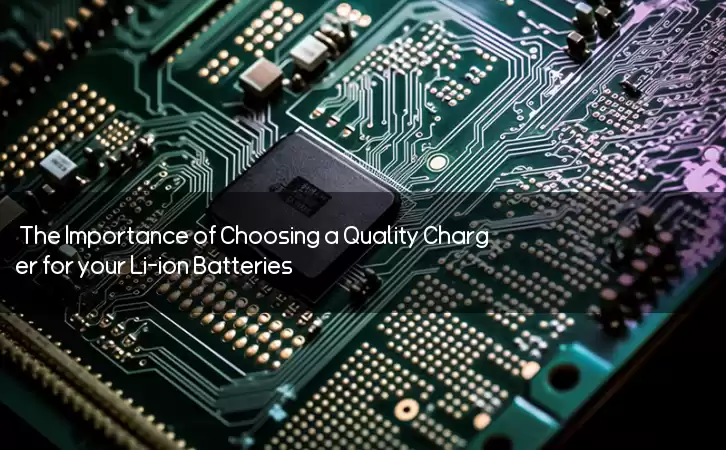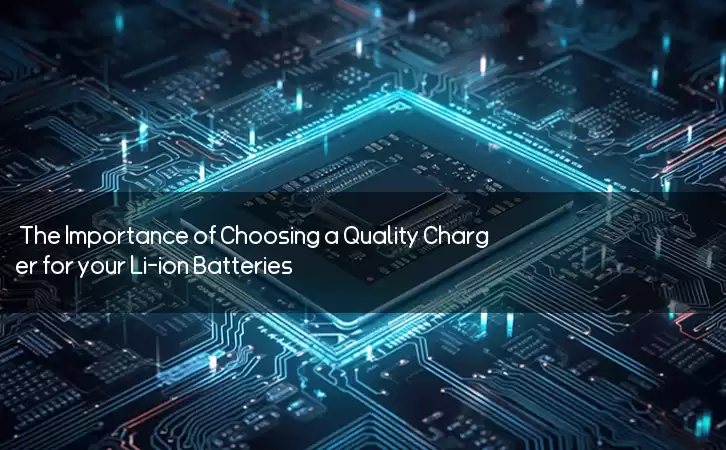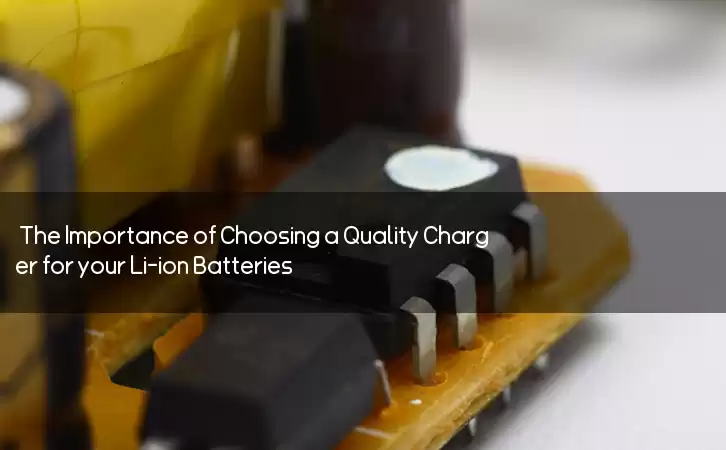Information Center
The Importance of Choosing a Quality Charger for your Li-ion Batteries
Published:2023-08-20 00:35:37 Author:Green WCND Views:97Do lithium ion batteries need a special charger?

Lithium ion batteries (Li-ion) are becoming increasingly popular for their high power density, light weight, and long-lasting rechargeability. They are used in a wide range of portable devices, including smartphones, laptops, tablets, cameras, and electric vehicles. However, one question that often arises is whether or not Li-ion batteries require a special charger.

The short answer is yes, Li-ion batteries do require a special charger. This is because of their unique chemical and electrical properties that differ from other rechargeable batteries such as nickel-cadmium (NiCad) or nickel-metal hydride (NiMH). Li-ion batteries operate at higher voltages (~3.7V per cell) and are more sensitive to overheating, overcharging, and undercharging. A Li-ion battery that is improperly charged can cause safety hazards, such as fire or explosion. Therefore, it is important to use a charger that is designed specifically for Li-ion batteries.

So, what makes a charger suitable for Li-ion batteries? First and foremost, the charger must match the voltage and capacity of the battery. The charger’s output voltage, measured in volts (V) or millivolts (mV), should be within the range recommended by the battery manufacturer. If the voltage is too low or too high, it could damage the battery or cause it to malfunction. The charger’s output current, measured in amperes (A) or milliamperes (mA), should also be appropriate for the battery’s capacity. If the current is too low, the battery may take too long to charge or not charge at all. If the current is too high, the battery may overheat or experience a thermal runaway.
In addition to the voltage and current, a Li-ion battery charger should also have the following features:
1. Protection circuits: A Li-ion battery charger should have built-in protection circuits that prevent the battery from overcharging, over-discharging, short-circuiting, or overheating. These circuits can detect the battery’s voltage, temperature, and current and adjust the charging accordingly.
2. Intelligent charging algorithms: A Li-ion battery charger should use intelligent algorithms that optimize the charging process based on the battery’s state of charge (SoC), temperature, and voltage. This can help prolong the battery’s lifespan and improve its performance.
3. Compatibility: A Li-ion battery charger should be compatible with a wide range of Li-ion batteries, including different chemistries (e.g. lithium cobalt oxide, lithium iron phosphate) and form factors (e.g. cylindrical, prismatic, pouch).
4. Certifications: A Li-ion battery charger should be certified by reputable organizations such as Underwriters Laboratories (UL), Intertek (ETL), or the Federal Communications Commission (FCC) to ensure its safety and quality.
It is worth noting that not all Li-ion battery chargers are created equal. Some chargers may claim to be compatible with Li-ion batteries but may not have the necessary features or certifications. It is important to do your research and choose a reputable brand that provides clear instructions and customer support.
In conclusion, Li-ion batteries do require a special charger that is designed to match their voltage, capacity, and other unique properties. Using the wrong charger or a low-quality charger can damage the battery or pose safety hazards. Therefore, it is important to invest in a high-quality Li-ion battery charger that has the necessary features and certifications to ensure safe and efficient charging.
Power Adapter Design and Customization Guide for Portable Electric KettlesI. Common Design Types for Portable Electric Kettle Power AdaptersPortable electric ke···
I. Common Design Types of Power Adapters External Independent Type (Most Common) Design: A standalone adapter (e.g., "black brick") connected to the p···
Handheld Vacuum Cleaner Power Adapter Selection GuideIntroductionHandheld vacuum cleaners have become a mainstream tool for household cleaning due to their port···
Drill Power Adapter Selection Guide.drill-container { font-family: Arial, sans-serif; line-height: 1.6; max-width: 800px; margin: 0 auto; padding: 20px; } .dril···





